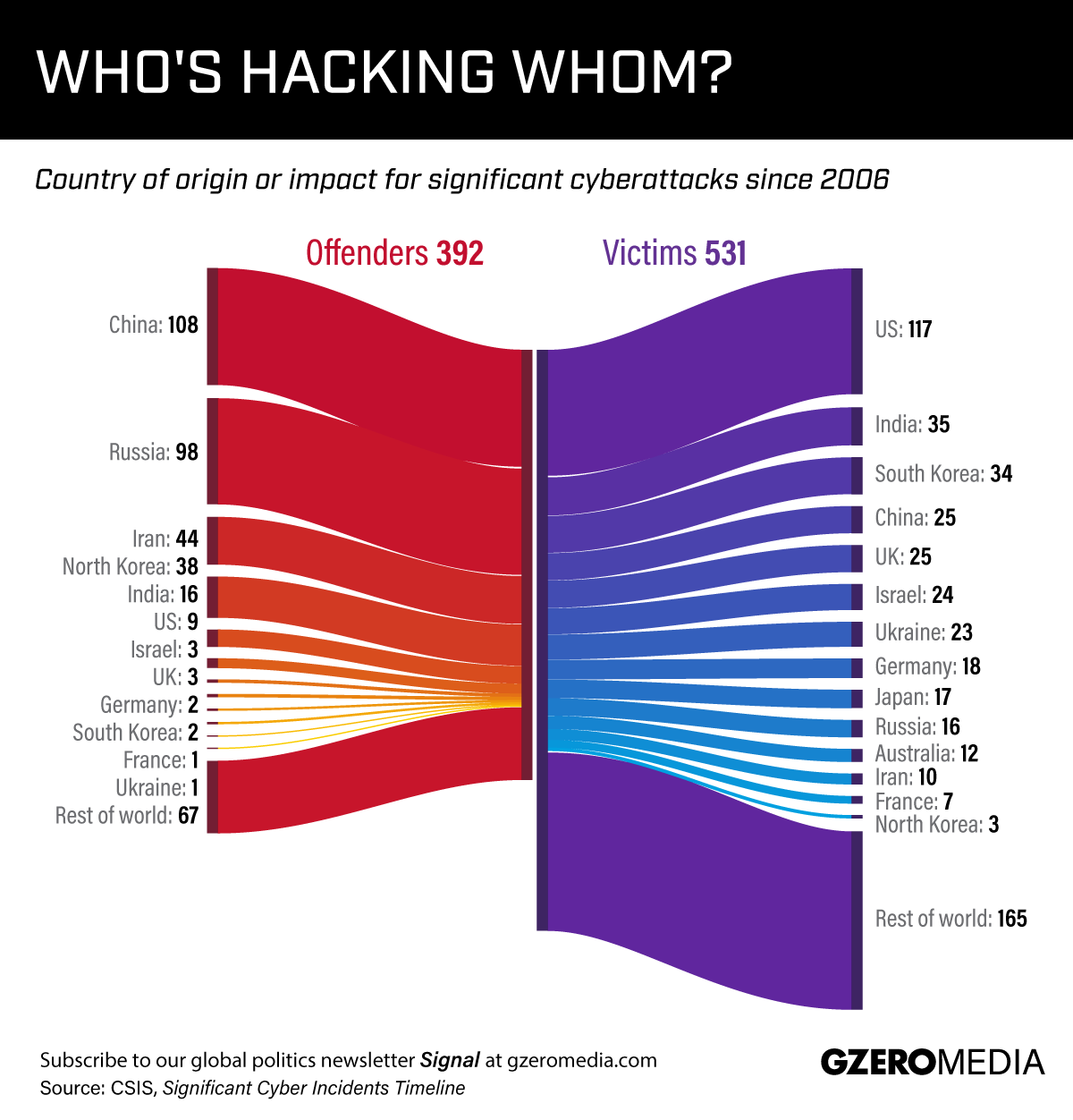The Graphic Truth: Who’s Hacking Whom?
It's no secret that cyberattacks are becoming more commonplace. But where do most of them originate and what countries do they target most? The graphic above shows the most significant offenders and victims since 2006. Hackers in China, Russia, Iran, and North Korea account for three-quarters of all major attacks. Nearly a fifth of attacks, meanwhile, have targeted institutions or companies in the United States.
(At least that we know of: this chart highlights known attacks on government agencies, tech companies, and other operations that caused more than $1 million in economic damage. But many cyberattacks are never disclosed, and some countries are more transparent than others, so consider this a cross-section of a much bigger — and more disturbing — picture.)
- DarkSide hack reveals risk of ransomware cyberattacks - GZERO Media ›
- Russian cyber attack could trigger NATO’s Article 5, warns NATO Deputy Secretary General - GZERO Media ›
- Podcast: Protecting the Internet of Things - GZERO Media ›
- Biden likely to push Putin on cybersecurity in Geneva meeting - GZERO Media ›
